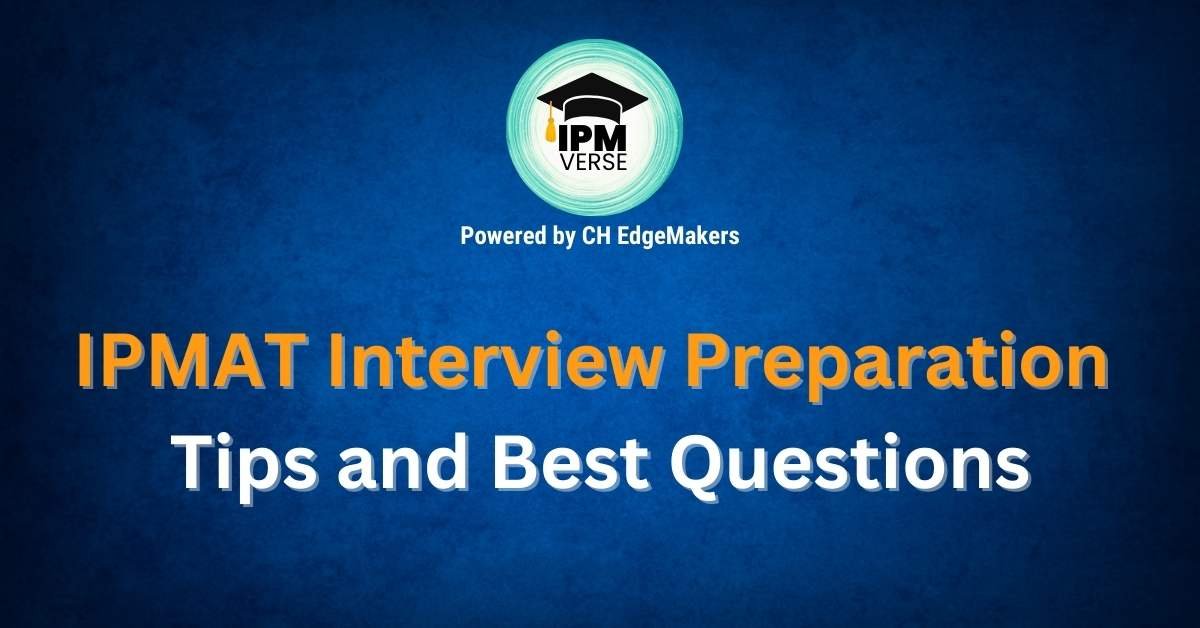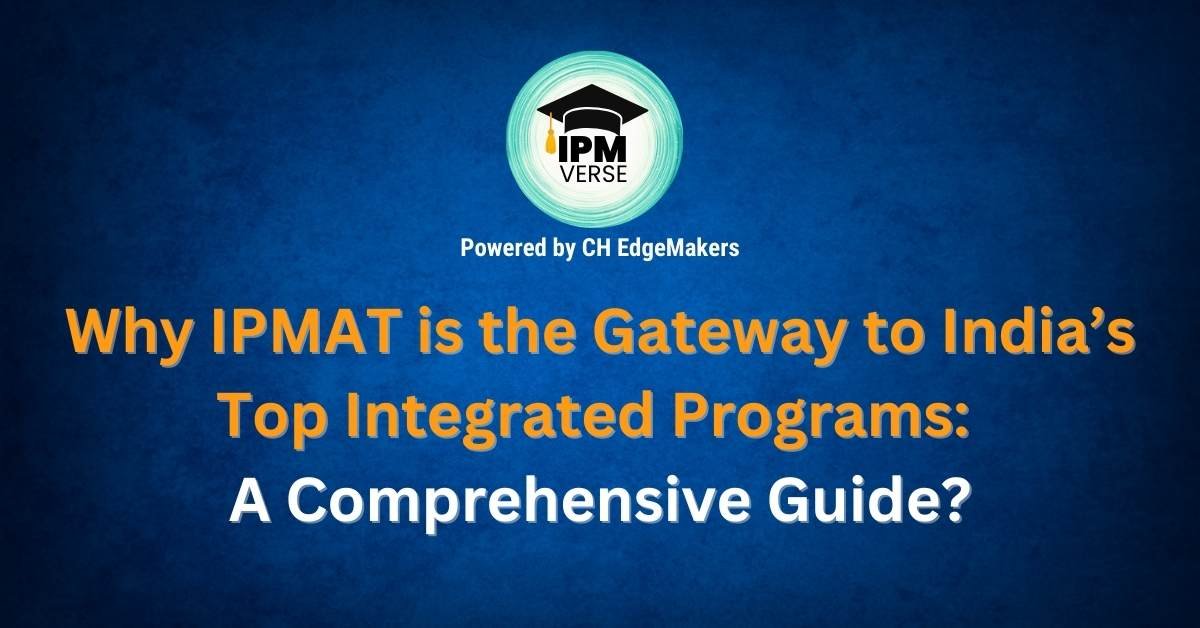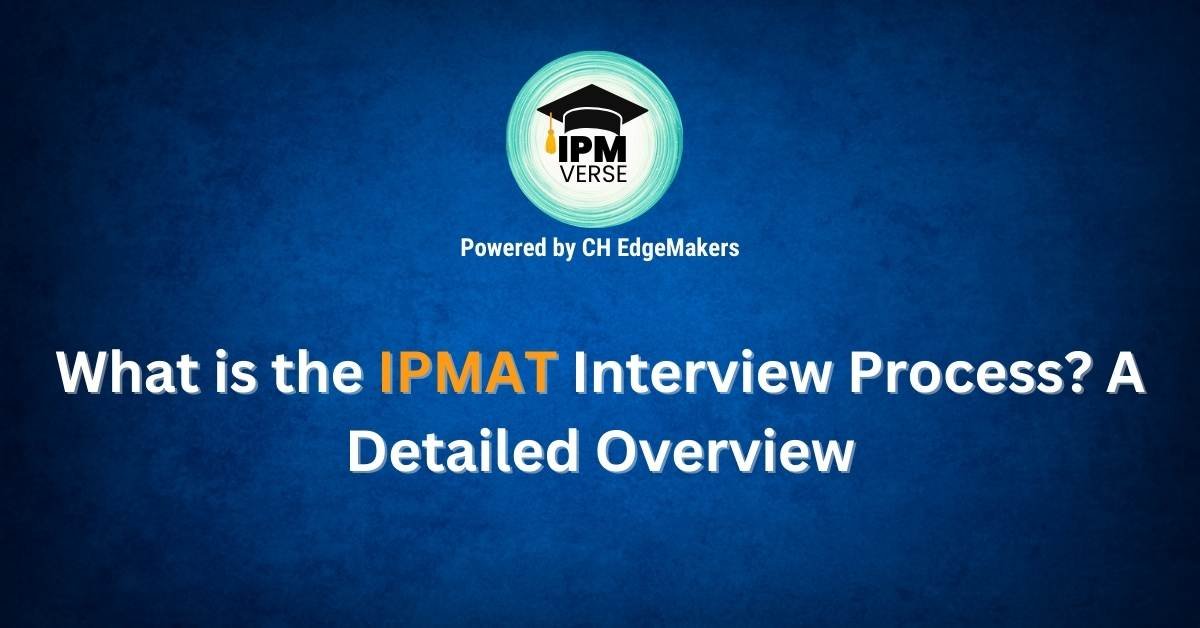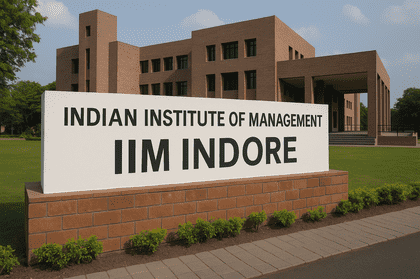IPMAT is the entry point to top five-year management courses in IIM Indore, IIM Rohtak, and IIM Ranchi. Clearing the written test is just the beginning; the subsequent very important step is Personal Interview (PI). Your PI performance decides your final selection, and hence proper preparation is necessary.
Here we are providing the most applicable IPMAT interview questions and tips so that you can achieve success in this crucial phase of the selection procedure.
Acquainting yourself with the IPMAT Interview
Shortlisting is conducted by an industry and academic panel of experts on various parameters such as communication skills, confidence level, logical skills, and career goal clarity. The interview will be of 15-30 minutes duration and consists of questions pertaining to a wide range of areas from academics to general awareness to hobby.
Key Topics Covered in IPMAT Interview
- Personal Welcome and Bio
- Academic Awareness
- Current Affairs and General Awareness
- Why Management?
- Industry-Based Situational and Behavioral Questions
- Hobbies and Co-Curricular Activities
- Ethical and Moral Dilemmas
We shall move to the most frequently asked IPMAT interview questions and answers.
Most Common IPMAT Interview Questions and How to Answer
1. Tell us something about yourself.
Purpose: It will give a preview of how the interview is going to proceed. It will familiarize the panel with your background, personality, and ambitions.
Tips to Answer
- Make it organized: Start from your name, educational qualification, achievements, hobbies, and future goals.
- Be direct and to the point in your response.
- Don’t give lengthy and unrelated answers.
- Highlight your strengths.
Sample Response:
“I am [Your Work], a class 12 student of [Your School Name]. I interested in business and management and hence chose IPMAT. I possess good analytical and leadership skills. These have been developed through [list some extracurricular activities like business competition, student council, or debate].”.
Besides reading, reading chess and business books are my hobbies. My dream is to be able to make a contribution to the management sector by providing creative problem-solving.
2. Why do you want to study a degree in management at an early age?
Purpose: The panel wants to know whether you want and have high motivation to study this profession.
Advice to Answer:
- Show interest in studying management.
- Link your interest or experience back to management.
- Express gratitude for what lies ahead in the program.
Sample Answer:
“Since the day I joined my school entrepreneurship club, I understood how important management is to drive a successful business. I am convinced that early exposure will distinguish me in understanding business dynamics. IPM course of IIM gives me the perfect blend of academic exposure and industry that makes me a multi-dimensional businessman.”
3. What are your strengths and weaknesses?
Purpose: This question examines self-awareness and honesty.
Tips to Answer:
- Choose strengths relevant to management, like leadership, problem-solving, or adaptability.
- When mentioning weaknesses, show how you’re working on improving them.
Example Answer:
“My greatest strength is that I am able to learn to adapt to a new situation. Adapting to an environment that is team-oriented or adapting to new ideas, I am never opposed to change. My weakest link is that I overthink and it is hard for me to make decisions in a timely manner. With all that being said, I am trying to find a balance between analysis paralysis and quickness.”
4. How would you view a new economic or business event that has happened recently?
Purpose: It evaluates your overall awareness of events and rationality.
Tips to Answer:
- Keep yourself updated with recent business and economics news.
- Format your answer: Mention the event, why it is significant, and your view.
- Avoid giving extreme views if you cannot support them.
“The recent RBI rate hike also brought to light the role of economic growth that it performs. While as much as you want interest rates to restrain inflation, they restrain investment as well. I believe the central bank has to find a balance between restraining inflation and nurturing long-term growth.”
5. Where would you like to be in 10 years’ time?
Purpose: The panel wants to know if you have realistic career and long-term goals.
Tip to Answer:
- Link your response to your management interest.
- Exhibit ambition with flexibility.
Sample Answer:
“10 years later, I will be operating as a management consultant and will be helping organizations with developing business strategies. I would want to work for different industries before ending up with a company of my own.”
6. If you were going to start your own business right now, which business would it be?
Objective: The test tests entrepreneurial imagination and flair.
Tips to Answer
- Choose something that holds importance for you.
- Tell us why it is timely now.
- Tell us how you would do it.
Example Answer:
If I were to begin a company today, I would begin an EdTech platform which is skill-based learning for students. Due to the increased demand for life skills such as coding, money management, and problem-solving, I feel an interactive AI-based platform can fill the gap.
Top Tips to Crack Your IPMAT Interview
1. Study About IIM and IPM Program
- Find out about the program design and syllabus.
- Get acquainted with the vision and mission of the institute.
2. Enhance Communication Skills
- Practice clear and confident speaking.
- Never utter the words “umm” and “you know.”
3. Stay Updated with Current Affairs
- Read The Economic Times and The Hindu newspapers.
- Stay very well-informed about business and finance news.
4. Behavioural Question Answers Practice
- Use the STAR (Situation, Task, Action, Result) method in answering question-based-on situations.
5. Mock Interviews are a Must
- Practice with mentors, teachers, or friends.
- Record yourself and maintain a count of corrections for improvement.
6. Dress Professionally and Use Friendly Body Language
- Wear formal clothes.
- Stand up straight, make eye contact, and smile nicely.
7. Remain Calm and Think Before Speaking
- Take a couple of seconds to think.
- If unsure, just say so politely rather than making uninformed guesses.
Final Thoughts
To crack the IPMAT interview takes confidence, practice, and instinct. Self-practice, skill building in communication, and keeping yourself updated can help in boosting your chances of cracking it. The interview is as much about testing facts as how you can make yourself a future management leader.
Stay assured, stay determined, and have faith in yourself. Wishing you good luck for the IPMAT interview!
Why IPMAT is the Gateway to India’s Top Integrated Programs:
IPMAT (Integrated Program in Management Aptitude Test) is the gateway to India’s top integrated programs, offering direct entry into IIMs…
What is the IPMAT Interview Process? A Detailed Overview
Integrated Program in Management Aptitude Test (IPMAT) is the most important entrance test for the future students who are willing…
Top Resources and Books to Prepare for IPMAT 2025: A
Top Resources and Books to Prepare for IPMAT 2025: A Complete List IPMAT (Integrated Program in Management Aptitude Test) is a…
Top MBA Entrance Exams in India 2026: Key Dates &
Top MBA entrance exams in India : An MBA is not a degree it is a roadmap to life. It…
Top MBA Colleges in India: Compare by Rankings, Fees, Placements
Many students aspire to pursue an MBA (Master of Business Administration) at some point in their careers. The field offers…
Top Career Options After IPMAT: Why IIM Indore is Worth
Integrated Program in Management Aptitude Test (IPMAT) is the gateway to one of India’s most prestigious management programs—the five-year Integrated…









